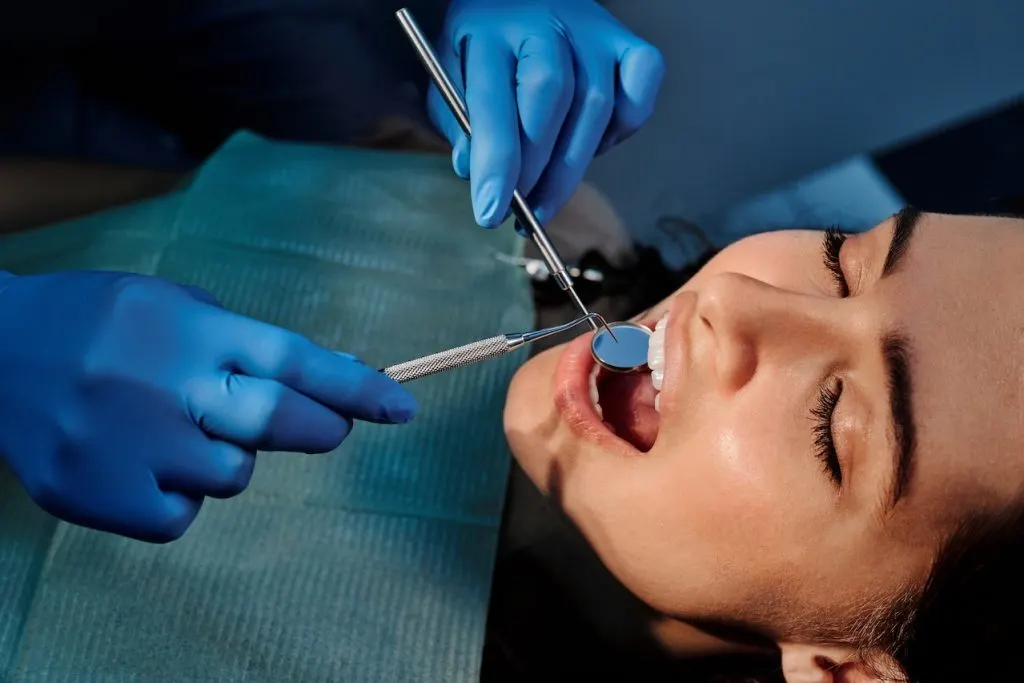How Long After Dental Work Before Surgery: – You should wait at least two weeks after dental work before undergoing surgery. The exact time may vary based on the type of procedure.
Navigating the timeline between dental work and surgery requires careful consideration. Your body needs time to heal from any invasive dental procedures, such as extractions or implants, before embarking on additional surgical stress. Dentists and surgeons often collaborate to determine the safest interval for your health and recovery.
This precaution helps minimize the risk of infection and ensures that you are in the best possible condition for surgery. When planning your dental and surgical procedures, disclosing your complete medical history to both healthcare providers is crucial. This enables them to create a tailored plan that considers your unique healing process and reduces potential complications.
Introduction To Dental Work And Surgery Timing
Dental procedures and surgeries need careful scheduling. Healing time from dental work is crucial before any additional surgery. Patients and doctors must plan for the best outcomes. This blog post explores the timing between dental work and surgery.
Importance Of Scheduling
Proper timing avoids complications and ensures safe, effective healing. Doctors assess each case to set the best dates. Patient health is the priority. A well-planned schedule promotes recovery.
- Consider the patient’s health history.
- Factor in dental work type
- Allow for adequate healing
Potential Risks Of Misalignment
Timing mistakes can lead to risks. Infection and delayed healing are possible. Blood clotting issues may arise. Patients need clear guidance on scheduling. Follow professional advice to minimize risks.
| Risk | Consequence |
|---|---|
| Infection | Longer recovery, additional treatment |
| Delayed Healing | Extended downtime, discomfort |
| Clotting Issues | Potential for serious complications |
Types Of Dental Procedures
Understanding the types of dental procedures is essential. It helps to plan any upcoming surgeries. Some dental work is minor. Others are more complex. Knowing the difference is critical.
Routine Dental Work
Dental check-ups and cleanings are standard. They are not surgical. They rarely affect surgery schedules. Fillings and root planing are similar. They are simple. Recovery is quick.
- Cleanings: Remove plaque and tartar.
- Fillings: Fix cavities in teeth.
- Root planing: Deep cleans below the gumline.
Invasive Dental Surgeries
Invasive procedures are more complex. They require more recovery time. Examples include wisdom tooth removal and dental implants. These can impact surgery plans.
| Procedure | Recovery Time | Details |
|---|---|---|
| Wisdom Tooth Extraction | 1-2 weeks | Removes impacted or problematic teeth. |
| Dental Implants | Several months | Replace missing teeth with artificial ones. |
Consult a medical professional. They will guide you on the best time for surgery after dental work. Each case is unique.
Factors Influencing The Waiting Period
Deciding the right time for surgery after dental work depends on several factors. These include the type of surgery needed, the healing process from dental work, and the patient’s overall health condition.
Type Of Surgery
The nature of the upcoming surgery plays a crucial role. For instance, significant surgeries like heart or abdominal operations may require a longer wait. This ensures that any potential infection from dental procedures does not complicate surgery outcomes.
Healing Time From Dental Work
The recovery time from dental procedures varies. Simple procedures like fillings might only need a few days. In contrast, extractions or gum surgery might take a few weeks. This healing time is essential to prevent infection risks during surgery.
Patient’s Health Condition
The overall health of the patient also affects the waiting period. Patients with diabetes or immune disorders might need more time to heal from dental work. This ensures they are strong enough for the surgery.
Doctors and dentists work together to determine the safest timeline for surgery after dental work.

Credit: www.acefamilydental.com
Consulting With Healthcare Professionals
Planning surgery after dental procedures requires careful coordination. Patients must consult healthcare professionals to determine the appropriate waiting period. This ensures safety and optimal healing.
Role Of The Dentist
The dentist plays a crucial part in planning post-dental surgery. They provide detailed records of the dental work performed. This includes the type of procedure, materials used, and healing progress. Patients should share this information with their surgeon. Dentists also advise on the necessary wait time before undergoing additional surgery.
Surgeon’s Assessment
The surgeon evaluates the patient’s overall health and dental work details. They must ensure no risk of infection or complications. Surgeons consider factors such as the invasiveness of the dental procedure and the patient’s healing rate. They may recommend a waiting period or specific pre-surgical care to promote optimal recovery.
Patients should schedule appointments with both their dentist and surgeon. This ensures clear communication and a shared understanding of the treatment timeline. Teamwork among healthcare professionals is vital for a successful outcome.
Medications And Antibiotics Considerations
Understanding the interplay between dental work and upcoming surgery is vital. Medications and antibiotics play a critical role in this consideration. They can influence the timing and safety of surgical procedures.
Impact On Surgery
Medications prescribed after dental procedures may affect surgical outcomes. It’s essential to disclose all medications to the surgical team. This helps prevent complications.
- Pain relievers may thin the blood, affecting surgery.
- Anti-inflammatory drugs could mask signs of infection.
- Steroids might suppress immune responses.
Always discuss the current medications with the surgeon. A safe surgery period is determined this way.
Antibiotic Prophylaxis
Some patients receive antibiotics before dental work. This is to prevent infection. These antibiotics can interact with drugs used during surgery.
| Antibiotic | Consideration |
|---|---|
| Amoxicillin | Check for conflicts with surgical antibiotics. |
| Clindamycin | Review for allergies or side effects. |
| Azithromycin | Assess for potential heart rhythm issues. |
Inform the surgeon about any antibiotics taken. This ensures proper planning and care.
The Ideal Timeline For Common Surgeries
Understanding the best time for surgery after dental procedures is crucial for your health. Different surgeries require varying waiting periods post-dental work. This ensures your body is ready for the following medical step. Below, find the ideal timelines for orthopaedic surgery, cardiac surgery, and cosmetic procedures.
Orthopaedic Surgery
For bone-related surgeries, a gap ensures safe recovery from dental work. Orthopaedic surgery demands a robust immune system. Wait 4 to 6 weeks after dental procedures before undergoing such surgeries. This timeline helps to reduce infection risks.
Cardiac Surgery
The heart is sensitive to infections. Dental work can release bacteria into the bloodstream. Patients need a minimum of 2 months before cardiac surgery. This period allows any potential dental infection to clear.
Cosmetic Procedures
For surgeries that enhance appearance, timing is also crucial. Cosmetic procedures require a wait of at least 3 weeks post-dental work. This ensures healing and reduces visible bruising or swelling.
Always consult with your doctors to determine the safest timeline for you.
Post-dental Work Complications To Monitor
Recovery Tips For Post-dental Work
Recovery Tips for Post-Dental Work are crucial for a smooth transition to any upcoming surgeries. Proper care ensures faster healing and minimizes complications. Here are essential tips:
Oral Hygiene Maintenance
Maintaining oral hygiene is vital after dental procedures. Follow these steps:
- Brush gently twice a day with a soft-bristled toothbrush.
- Use fluoride toothpaste to protect against decay.
- Floss daily to remove plaque from between teeth.
- Rinse with an antiseptic mouthwash to reduce bacteria.
These steps help prevent infection and promote healing.
Diet And Nutrition
Right after dental work, choosing the correct diet is vital. Here are some guidelines:
| Timeframe | Recommended Foods | Foods to Avoid |
|---|---|---|
| First 24 Hours | Soft foods, like yoghurt and applesauce | Hard, sticky, or chewy foods |
| 2-7 Days | Gradually introduce semi-soft foods | Spicy and highly acidic foods |
Staying hydrated and avoiding sugary drinks will also support recovery.
Case Studies And Testimonials
Exploring individual experiences offers valuable insights into post-dental surgery timelines. Real-life case studies and testimonials shed light on the best practices and timing for surgeries following dental procedures.
Successful Surgery Post-dental Work
Many patients have undergone successful surgeries after dental work. Their stories emphasize careful planning.
- John’s Knee Replacement: Two weeks after a tooth extraction, John had his knee replaced. He followed his dentist’s advice closely. This ensured no infection risk.
- Emma’s Cosmetic Surgery: Emma waited a month post-root canal for her facelift. This gave her ample healing time. Her surgeon praised her patience.
These cases show that a waiting period can lead to successful outcomes. Patients avoided complications by following medical guidance.
Lessons Learned From Timing Errors
Not all stories have happy endings. Some serve as cautionary tales about the importance of timing.
| Patient | Dental Work | Surgery | Outcome |
|---|---|---|---|
| Alex | Wisdom tooth removal | Hip surgery after 1 week | Delayed healing due to infection |
| Sophia | Dental implant | Heart valve surgery after 10 days | Post-surgical infection |
Alex and Sophia’s experiences underline the risks of rushing surgery after dental procedures. Infections and healing complications occurred due to short intervals. These testimonies teach us to respect healing times for safer outcomes.

Credit: artofdentistryinstitute.com

Credit: artofdentistryinstitute.com
Frequently Asked Questions
Is It Safe To Have Dental Work Done Before Surgery?
Consult with your surgeon before dental work, as it’s generally safe, but timing matters. Pre-surgery clearance may be required to prevent infection risks.
Can I Still Have Surgery With A Tooth Infection?
It’s risky to undergo surgery with a tooth infection due to potential complications. Consult your dentist and surgeon for a safe approach.
Why Do They Ask About Teeth Before Surgery?
Before surgery, doctors inquire about teeth to prevent dental damage and assess the risk of infection or complications during intubation and anaesthesia.
How Long Does It Take For Dental Work To Heal?
The healing time for dental work varies based on the procedure. Simple fillings may heal within a few hours, while surgical interventions like extractions can take up to two weeks. Always follow your dentist’s aftercare advice for optimal healing.
Conclusion
Understanding the appropriate wait time between dental procedures and surgery is crucial for your health. Consult your dentist and surgeon to tailor the timeline to your needs. Prioritizing your recovery by following expert advice ensures the best outcomes. Remember, patient safety is the top priority in planning your healthcare journey.

Hello there! I’m here to assist you with health tips and tricks. Whether you’re looking to boost your energy, improve your sleep, or enhance your overall well-being, I’m here to guide you with strategies and frameworks that can empower you to make positive changes.
First and foremost, it’s important to understand that health is a holistic concept encompassing various aspects of physical, mental, and emotional well-being.

